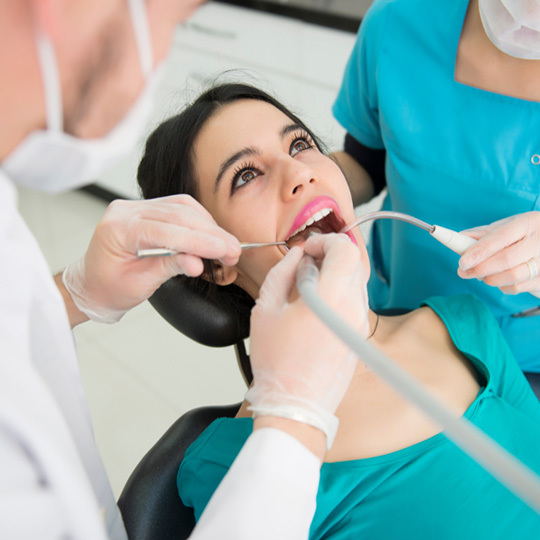
Your dental health is an integral part of your general well-being, and knowing when a dental emergency arises will significantly impact your oral health. Dental emergencies can vary from severe pain to tooth traumas caused by accidental collisions or falls. Being aware of what may constitute a dental emergency and when to seek immediate help can save you from needlessly suffering from dental issues and getting further complications.
What can serve as a Dental Emergency?
A dental emergency is defined as any situation that requires immediate intervention from a dental professional to relieve pain, stop bleeding, or prevent permanent damage to your dental or gum health. Here are some common examples of dental emergencies:
- Severe Toothache: An exposure to prolonged toothache which is highly intensive and propagates can be an indication that there is a severe infection or an abscess that needs prompt remedy.
- Trauma or Injury: Accidents like slip and fall, sports injuries, or motor vehicle collisions may damage the teeth by breaking, cracking, or knocking them out. Such teeth may need immediate attention to prevent future problems.
- Bleeding Gums: The frequent or overlapping gum bleeding, typically caused by severe gum disease or some other kind of injury, should receive urgent attention.
- Lost Dental Restorations: When the filling, the crown, or the dental implant loses its grip, the exposed sensitive tissues inside the tooth may cause pain, infection, or tooth decay.
- Swelling or Infections: Swelling of the face together with fever and difficulty in breathing and swallowing could be a warning sign for a serious infection that must be immediately taken care of.
- Objects Caught Between Teeth: Jaw movements that carry food between teeth can cause discomfort and even harm to the gums and the teeth themselves when not removed quickly.
- Severe Jaw Pain: There could be pain or problems in opening or closing the jaw which can be a sign of temporomandibular joint disorder or any serious underlying disease.
When to Seek Immediate Help
Swift action is needed in a dental emergency to prevent more damage and soothe the pain. Look for immediate oral treatment if you encounter the following situations.
- Severe Pain: When there is an intense and persistent tooth pain that is unresponsive to your regular pain drugs then it is quite urgent to understand the underlying cause of the pain and be provided with timely treatment.
- Broken or Knocked-Out Teeth: In case a tooth is fractured, broken, or pushed out, try to pick the tooth or the tooth pieces off the floor and rinse them in water. If it is possible, insert the tooth back into its socket or store it in milk or saliva and you need to seek for dentist immediately.
- Uncontrolled Bleeding: If your mouth bleeding is severe and pressing a clean cloth or gauze on it for 10-15 minutes doesn’t stop the bleeding, you must seek urgent dental care.
- Swelling or Abscess: The swelling of the face along with fever and difficulty in breathing or swallowing may indicate the existence of a serious infection that needs immediate help to avoid the occurrence of complications.
- Injuries to the Jaw: Injury to the jaw or facial area that leads to severe pain, difficulty in eating, or swelling needs to be examined promptly to determine the presence of fractures or other injuries.
What to do if a dental emergency arises?
- Stay Calm: Being calm could help you think clearly and respond properly to the emergency.
- Control Bleeding: Apply a clean cloth or gauze on the area gently to regulate bleeding. If bleeding does not stop seek emergency dental care.
- Save Lost Teeth: In case a tooth is knocked out, handle it delicately by the crown (upper part), and don’t touch the root. If the tooth is dirty, give it a rinse, but do not scrape or remove any attached tissue. Try to store it in milk or saliva and see a dental professional immediately.
- Manage Pain: Over-the-counter medications like ibuprofen and acetaminophen are useful as temporary relievers until you can schedule an appointment with a dentist.
- Protect Injured Teeth: In case a tooth is cracked or broken, do not chew on the affected side of the mouth, and stay away from hard and sticky foods that can worsen the damage.
Conclusion
Being aware of what a dental emergency is and when immediate attention is required is the key to preserving your dental health and preventing complications. Be sure to know how to identify dental emergencies when they happen and act quickly to prevent discomfort, and damage, and preserve your bright smile for more years to come. It is very important to call your dentist or make a dental emergency appointment for proper assessment and treatment of tooth or other mouth concerns in any dental emergency. Invest your precious time and efforts in your oral health, because it needs your care and attention.


